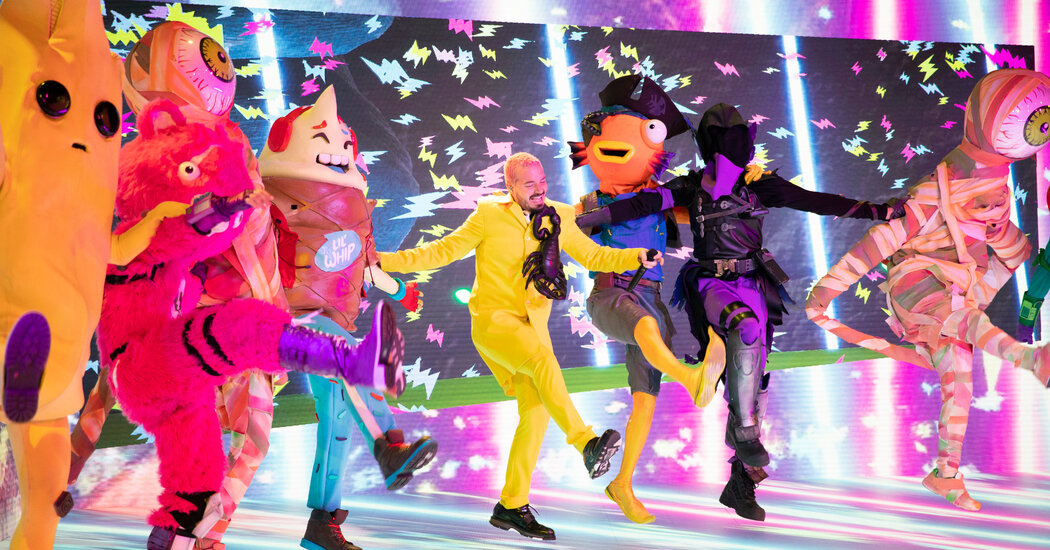Epic Games is acquiring an online music platform that has been embraced by musicians for its eclectic offerings and a payment system that favors artists.
The world of independent music got a jolt on Wednesday when Bandcamp, the platform that has been a haven for musicians during the pandemic, announced that it had been acquired by Epic Games, the company behind blockbuster online video games like Fortnite.
Terms of the deal were not disclosed. In a statement, Epic said that Bandcamp “will play an important role in Epic’s vision to build out a creator marketplace ecosystem for content, technology, games, art, music and more.”
While a small player compared to giants like Spotify, Apple or YouTube, Bandcamp has become a favorite outlet among musicians for letting them control how their music is shared and sold and giving artists the bulk of the income they receive from those transactions. According to Bandcamp, artists collect an average of 82 percent of every sale, and the company says that since it went online in 2008, its payments to artists and labels are “closing in on $1 billion.” By comparison, last year Spotify said it had paid out $5 billion to music rights holders in 2020 alone.
For listeners, Bandcamp has also become a cherished smorgasbord, filled with obscure but wonderful music they may find nowhere else.
But as streaming has become the dominant format for music, artists have begun complaining, loudly, that they are not receiving their fair share of the bounty. According to industry estimates, Spotify pays record labels, music publishers and other rights holders about one-third of a cent for every click of a song; what portion of that money makes its way into a musician’s pocket is determined by their deals with those labels and publishers.
On Bandcamp, on the other hand, artists can upload their own work and set the pricing rules for downloads of their own work — pay-what-you-wish pricing is common. During the pandemic, Bandcamp has waived its fees once a month on “Bandcamp Fridays,” bringing the company waves of goodwill. Even more surprising, Bandcamp says it has been profitable since 2012. (Last year, Spotify had $10.7 billion in revenue and lost about $276 million, according to company reports.)
Epic Games, which is based in Cary, N.C., and is privately owned, said little about its plans for music, and a company spokeswoman declined to answer further questions about the deal. But Epic’s statement on Wednesday indicated that it was interested in Bandcamp as a direct-to-consumer marketplace. “Epic and Bandcamp share a mission of building the most artist-friendly platform that enables creators to keep the majority of their hard-earned money,” the company wrote.
Fortnite, Epic’s flagship game, has been one of the most innovative outlets for music in video games, allowing artists to appear virtually, often in elaborately produced segments In April 2020, the rapper Travis Scott made what was widely seen as a breakthrough appearance, drawing 28 million players to his virtual performance. For Halloween that year, the Latin pop star J Balvin gave a campy concert dressed as a green-haired Frankenstein’s monster, backed by dancers in costume as ghosts and zombie Cyclopes.
Epic has also taken center stage in one of the most high-profile debates in current tech policy. The company sued Apple in 2020, saying that the terms of its App Store — which takes payment commissions of up to 30 percent — were unfair. Epic also fought the public-relations battle around that lawsuit with slick, meme-ready content like “Nineteen Eighty-Fortnite,” a parody of Apple’s famous “1984” TV ad that introduced its Mac computer as a joyful disrupter of gray tech monopolies.
Last year, in a split decision, a federal judge ordered Apple to give app developers a way for their customers to pay for services that could bypass Apple’s system. Both Apple and Epic Games have appealed that decision.
In a statement on Bandcamp’s website, Ethan Diamond, Bandcamp’s chief executive and co-founder, seemed to pre-emptively dispel worries about his platform’s future, and about its value to artists.
“Bandcamp will keep operating as a stand-alone marketplace and music community, and I will continue to lead our team,” Diamond wrote, telling artists that “you’ll still have the same control over how you offer your music, Bandcamp Fridays will continue as planned, and the Daily will keep highlighting the diverse, amazing music on the site.” The deal with Epic Games, he said, would help Bandcamp expand internationally and “push development forward across Bandcamp.”
As news of the deal spread, some independent artists sounded a note of cautious optimism. Tom Gray of the British band Gomez, who has been a leading critic of Spotify and of the streaming economy in general, tweeted a request for Epic Games: “Please think seriously and long,” he wrote, “about whatever you do with the one place independent artists can always rely on for direct income from recorded music.”


























